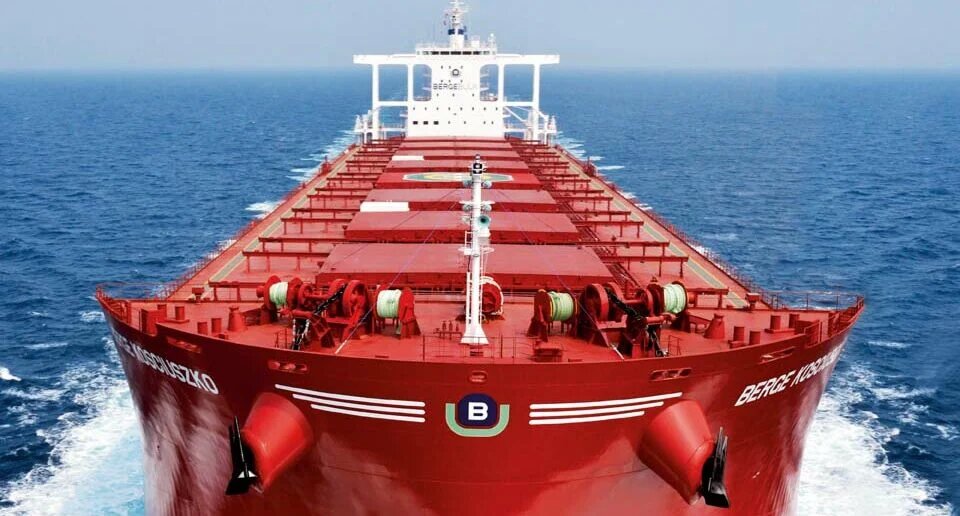The “2nd EfxINNOs Joint Workshop: Innovative Marine Monitoring Technologies for a Sustainable Blue Economy in the Black Sea”, hosted by the Black Sea Economic Cooperation (BSEC) PERMIS and organized by Istanbul University, was held in Istanbul in a hybrid format.
Throughout five thematic panels, ministries, regional organizations, municipalities, academia, the private sector, and funding mechanisms evaluated how monitoring technologies can be integrated into /regional policy cycles and sector operations with concrete examples. The sessions, conducted with TR/EN simultaneous translation, assessed the marine and coastal monitoring data needed for maritime decision-making and implementation processes, as well as related innovative monitoring technologies. Not only new sensors and platforms were defined, but also cross-institutional and cross-sectoral “usable product and service portfolios”.
During the five panels held throughout the day; the role of monitoring technologies in national policy development and implementation processes; alignment with the common policy framework in the Black Sea (Bucharest Convention–BSIMAP, Common Maritime Agenda, SRIA); the monitoring needs of sectors such as shipbuilding, ports, ship operations, tourism, aquaculture and fisheries, renewable marine energy, mining–drilling; and advanced monitoring–sensing solutions and /cooperation mechanisms were discussed. The discussions, in line with the principles of data continuity and interoperability, combined the “use case–indicator–technology–funding” chain at the same table.
These steps taken in the Black Sea follow a line consistent with successful models on a global scale: open data standards and indicator-based assessment approaches under regional sea conventions; the provision of ready-made products to (national–regional) decision-makers by coastal and ocean observation systems; are aligned with the data–product backbone created by the EMODnet–Copernicus coordination in Europe and the digital twin vision for decision support of the Ocean Decade DITTO program.
The workshop outcomes will be transformed into a list of priority use cases and technology areas to support the innovative marine monitoring technologies innovation ecosystem in the region and the 2026 EfxINNOs Hackathons, and will be announced to the public and stakeholders. National R&D and entrepreneurship programs, along with Interreg NEXT Black Sea Basin and EU /partnership calls, will be considered as key tools for scaling up the implementation.
Some notes from the speeches made within the scope of the panels and sessions are as follows:
– Prof. Dr. Yelda Aktan, EfxINNOs Turkey Coordinator – Istanbul University:
“Seagrasses and algae are the blue carbon backbone of the Black Sea: they capture carbon, buffer coastal erosion, and support water quality and biodiversity. When we measure and manage blue carbon sequestration capacity; we increase resilience to storms and coastal pressures, improve water quality, while also strengthening the operational efficiency of maritime sectors and investor confidence. EfxINNOs connects national responsibilities to the regional backbone with a standardized framework that produces data ‘for decision’ not ‘for reporting’, and rapidly deploys applicable solution portfolios to the field.”
-BSEC Deputy Secretary General Dimitrios Rallis:
“Today’s workshop is in full alignment with the Black Sea Economic Cooperation (BSEC) programs for the Black Sea’s marine and coastal ecosystems, a cleaner environment and water quality, and the growth of the Blue Economy.”
The protection of marine ecosystems, the effective management of natural resources, adaptation to or mitigation of climate change, waste management, the enhancement of biological diversity, and the reduction of pollution are our main priorities. We sincerely believe that we will carry out productive cooperation with EfxINNOs in the future. We would like to state that, as the BSEC, we are ready to support the implementation of this concrete program and future Black Sea cross-border cooperation projects.
– Prof. Dr. Georgios Sylaios – EfxINNOs Project Coordinator, Democritus University of Thrace
“EfxINNOs; converts the high-resolution data it produces with ROVs and buoys into decision-support products through harmonized processing methods and artificial intelligence-supported analyses. The workshop in Istanbul was an important step in integrating this technical capacity into the multi-stakeholder sustainable development goals of sectors such as ports, shipbuilding and operations, tourism, aquaculture, and renewable energy. Ahead of the hackathons to be held in 2026, we have obtained valuable outputs for strengthening the innovative marine monitoring technologies ecosystem that will support decision-making, implementation, and sector operations in the region.”
Serdar Akdemir, Council Member of the IMEAK Chamber of Shipping and Chairman of the Sustainability Commission:
“We must bring data-driven policy, technological innovation, and inclusive governance together in the same chain in the Black Sea against climate-related risks, biodiversity losses, and coastal pressures, with the goal of increasing the international competitiveness of our maritime sectors. In line with our ‘Seafaring Nation, Seafaring Country’ vision, with an environmentally friendly approach and a continuously evolving service understanding, we aim to provide lasting contributions to the national economy while supporting our members’ activities in harmony with the global system. Within the framework of IMO and EU regulations, green transformation, emission reduction, waste and pollution management, and the protection of marine ecosystems are among our priorities. Together with universities and regional stakeholders, we are ready to accelerate decision-making processes through transparent data sharing and interoperable solutions, and to enhance efficiency and sustainable competitiveness across all sectors, from ports to shipbuilding, from transportation to tourism and aquaculture.”
7DENIZ





